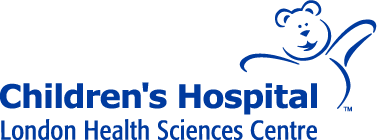Welcome to the Paediatric Celiac Disease Clinic at Children's Hospital, LHSC. Our dedicated team is committed to providing specialized care for children diagnosed with celiac disease. We understand the unique challenges this autoimmune condition poses for young patients and their families, and we are here to offer comprehensive support.
About Celiac Disease in Children
Celiac disease is an autoimmune disorder that primarily affects the small intestine when gluten is consumed. Gluten is a protein found in wheat, barley, rye, and their derivatives. In children, this condition can manifest with a variety of symptoms or none at all. Some common signs and symptoms include:
Gastrointestinal issues: Diarrhea, abdominal pain, bloating.
Failure to thrive or stunted growth.
Skin rashes.
Fatigue and irritability.
Nutritional deficiencies.
Diagnosis of Celiac Disease
Diagnosing celiac disease in children requires careful evaluation and specific tests. Our team employs a range of diagnostic tools to confirm the diagnosis. These tests may include:
1. Blood Tests: A blood test to measure specific antibodies associated with celiac disease, such as anti-tissue transglutaminase (TTG) antibodies and anti-endomysial antibodies (EMA).
2. Endoscopy and Biopsy: In some cases, an endoscopy may be recommended to visualize the small intestine and obtain tissue samples (biopsy) for further analysis. This is considered the gold standard for diagnosing celiac disease.
3. Genetic Testing: Genetic testing can help identify the presence of certain genetic markers associated with celiac disease.
Managing Paediatric Celiac Disease and Treatment
Once a diagnosis of celiac disease is confirmed, our team will work closely with you to develop a personalized treatment plan for your child. The primary treatment for celiac disease is a strict gluten-free diet. This means eliminating all sources of gluten from the child's diet, including wheat, barley, rye, and any products containing these grains.
We understand the challenges of managing a gluten-free diet, especially in children, and we provide guidance and resources to help you make informed choices about safe foods and meal planning. Our goal is to ensure your child receives proper nutrition while avoiding gluten.
Education and Resources
Education is a key component of managing celiac disease. We provide educational materials and resources to help you and your child understand the condition and make informed dietary choices. Our handouts include information on:
Safe and unsafe foods.
Reading food labels.
Gluten-free cooking and baking tips.
Dining out and traveling with celiac disease.
Coping with celiac disease emotionally and socially.
Helpful website resources
Visit Celiac Canada's website.
Monitoring Your Child's Health
Regular follow-up appointments and monitoring are essential to track your child's progress and ensure their well-being. We may perform blood tests to check antibody levels and assess the healing of the intestinal lining. Our team will also address any concerns or challenges you may encounter while managing celiac disease in your child.
Contact Us
If you suspect your child may have celiac disease please contact your primary health care provider to start the work-up. Once a positive screen is confirmed, please have them send a referral to our clinic before making any dietary changes. We are here to provide the best possible care and support for your child's health and well-being.



